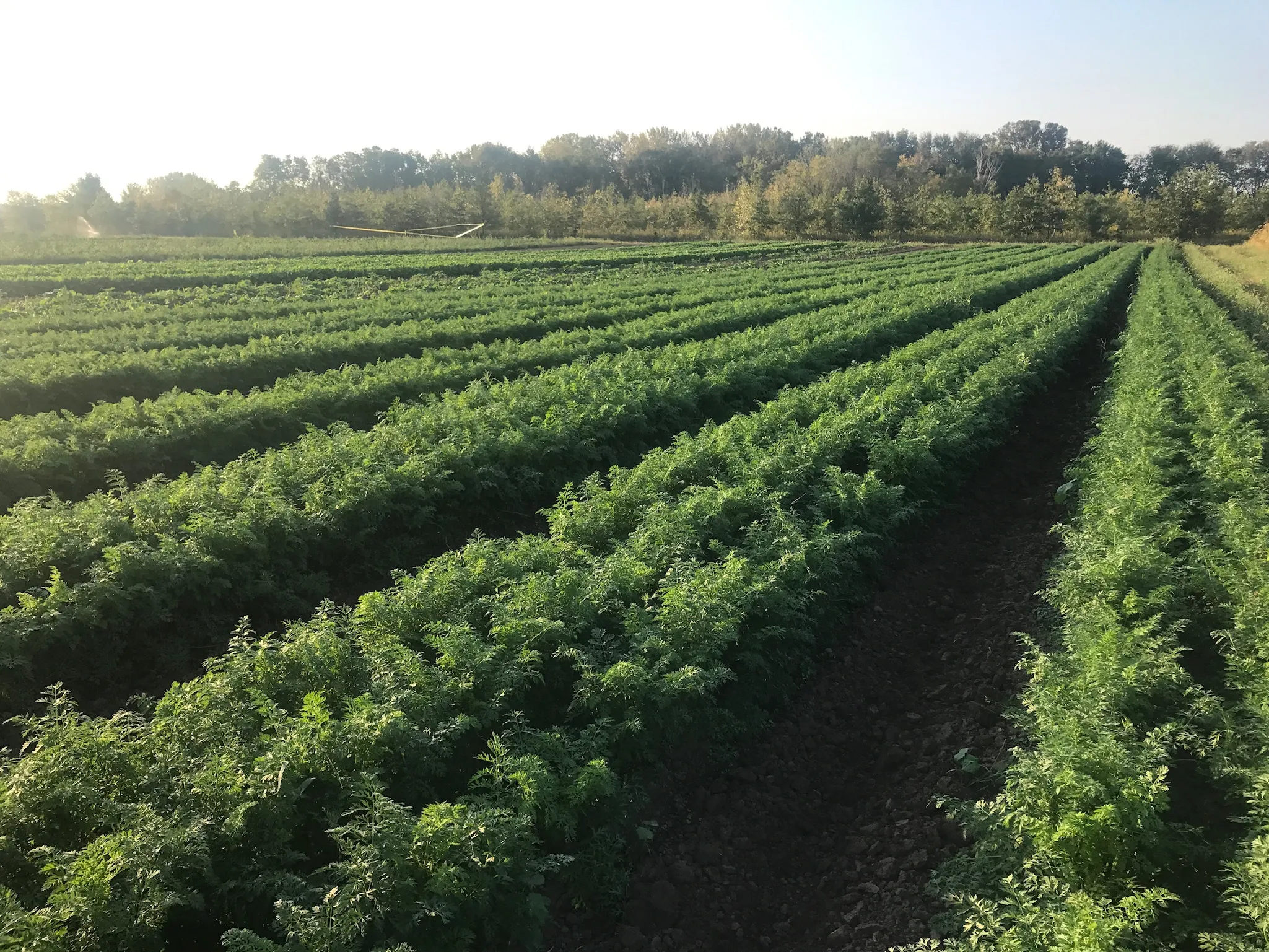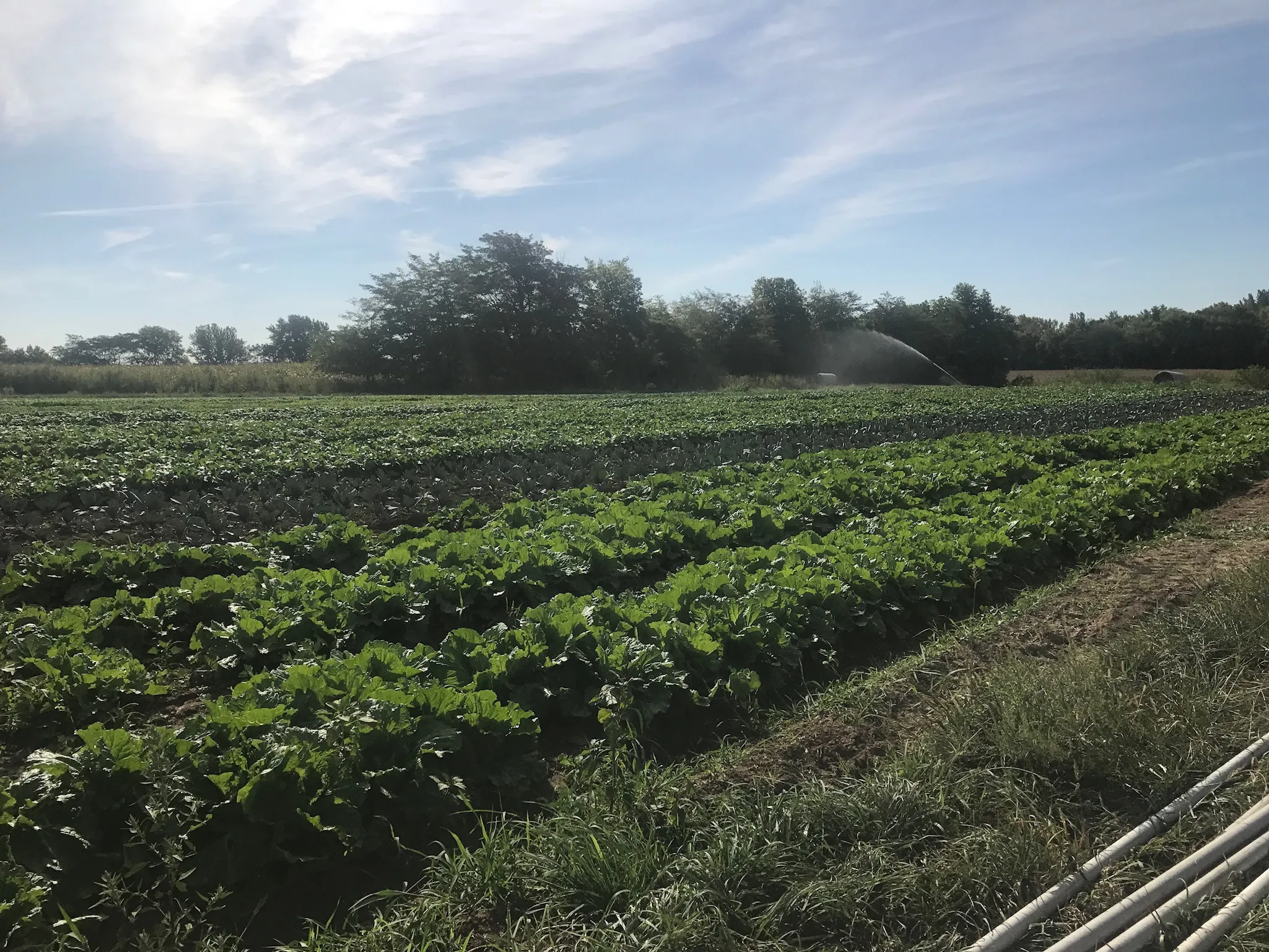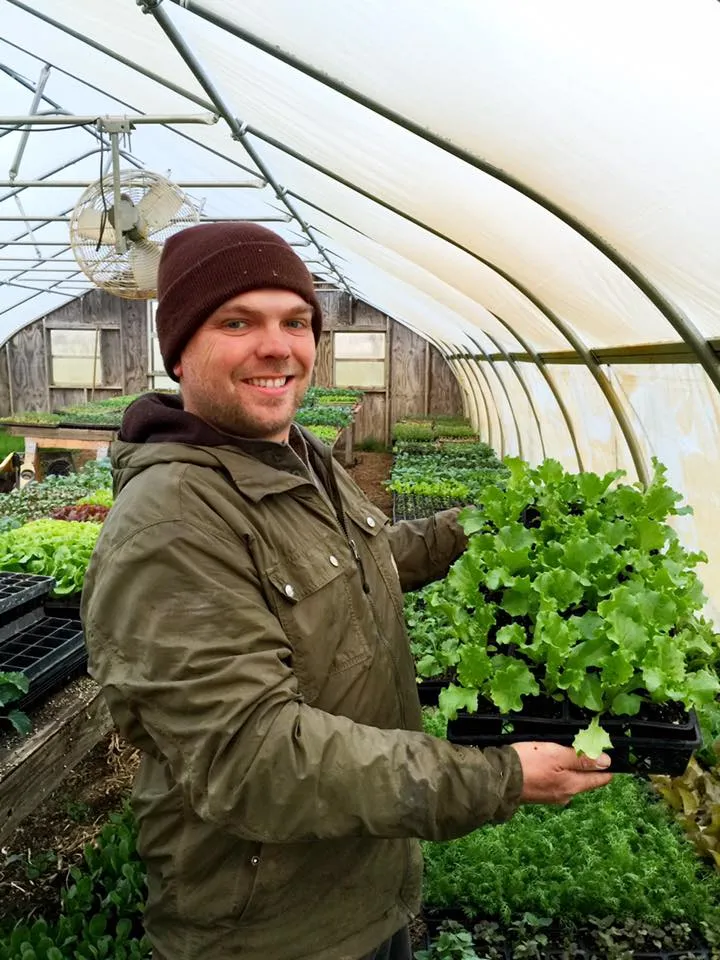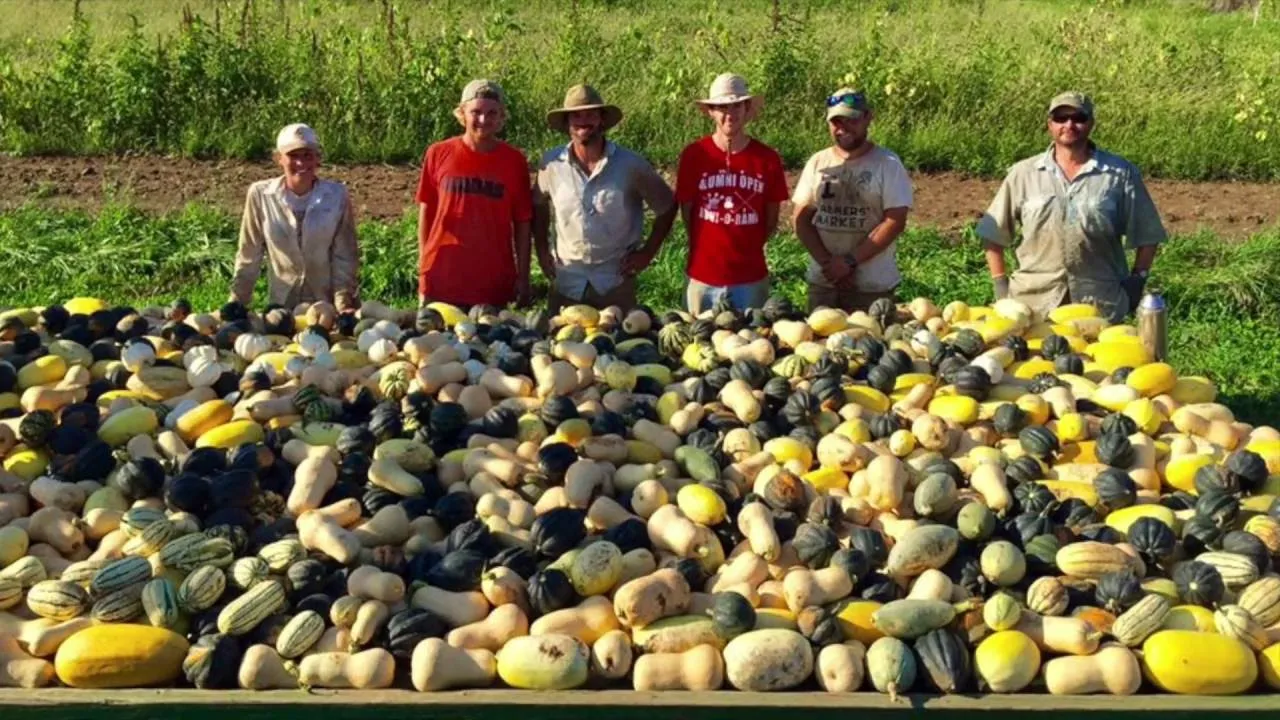Farm of the Month: PrairiErth Farm
This year marked the beginning of our new "Farm of the Month"
series on the Tend Blog, where we highlight the amazing work and
delicious produce and food that small organic farms are
producing. April’s Farm of the Month is PrairiErth Farm in
Atlanta, IL. Check back each month for new features. To be
considered for our series, please email [email protected].
Owner/Manager Name:
Hans Bishop
Location:
Atlanta, IL
Number of Employees:
8
Acreage: 20 acres
Specialties of the Farm:
We love storage crops!
How did you get into farming?
I was born into it. When I was growing up, I lived on the farm,
but as soon as I graduated high school I moved to town, worked a
corporate insurance job for 10 years. When I was growing up
everyone thought I'd farm. My mom made me be involved in 4-H and
every year at the fair I had this huge frown of discontent on my
face, as I showed vegetables and set up vegetable displays. My
Dad's farm is 300 acres. It’s pretty flat, but we have hillsides
where we have cattle and hay -- only about 175 total acres of
cropland, from which my 20 acres comes out of. My mother's side of
the family has 600 acres of land that’s in conventional
production, this is deep black prairie soil, the best land in the
world.
I have fond memories and feel a deep bond to both places. I helped
my grandpa when I was growing up on the other farm, as well. It is
my goal to gain management of the rest of our family land in the
future and transition it to organic production and hopefully
expand further the vegetable operation.

Tell us about the story of your farm – how did you (and your
farm partner) get started? What was that like?
What challenges did you encounter?
Katie, my wife, and I watched Food Inc. close to 10 years ago and
that got us thinking. We were talking about our eating habits in
the grocery store parking lot and also about how we could both
work together and deal with having kids and not sending them to
daycare. I said, "we could farm" and "my family has land". That’s
where it started. I asked my dad if I could work for him, and he
said no. He had transitioned the farm to Certified Organic
shortly after 2000 about the time that I left, he was raising corn
and beans organically along with his livestock.
He had dabbled in growing vegetables. He said he'd rent me a
couple acres to get started and help me build a hoophouse. We
planted garlic in the fall of 2009 and attended our first markets
in 2010, while Katie and I worked full time still. I was able to
work four 10-hour days and got an extra day of the week off to do
some farm work. In 2011, we had 30 daring CSA members who signed
up in the fall and over the winter to put money in the bank for me
to leave my job. Katie continued to work full time for benefits
and steady income. Growing more successful each year, we expanded,
got better, made investments, and learned a little more.
We always set out to have the farm sustain us. In 2015, Katie left
her job and joined me on the farm full-time. Things have changed
since we first decided to do this, we've decided not to have
children and make the farm our baby. We both care for the farm
deeply and enjoy seeing it grow with our efforts. In many ways, it
has brought my family back together in ways I couldn't imagine.
What are some important things you’ve learned since you started
at your farm?
The farm will take whatever you give it...and then ask for more.
If you have a torch and a welder...you can accomplish anything.

What is the most challenging aspect given the location of your
farm?
There is almost enough of a market within our immediate reach in
Central Illinois to sustain us. We have five cities within
about an hour of the farm that are 100,000 or bigger. Central
Illinois though just isn't as concerned about their food enough
yet to completely sustain us. The Chicago market is within our
reach and this is where we see a lot of consistent growth and we
do focus a lot of our energy here for expanding our wholesale
scope of our business.
What do you love about your community that makes it a special
place to farm?
We do have a lot of community support and die-hard followers in
our main city we market into in Bloomington-Normal, IL. They care
about the farm and fully support what we are doing.
Name something you would love to grow that you haven't tried or
been able to grow yet?
Parsnips
Where do you see your farm 10 years from now?
Expanding more into wholesale and stepping down some from the
weekly marketing efforts at farmers markets and CSA. I'd like to
be in the 40-80 acres of actual vegetable production with at least
twice as much available to rotate through with cover crops,
livestock, and small grains in off veg years.
What are a few of your favorite farming pro tips?
Pay attention to the soil, get tests done regularly to gauge your
progress in your soil building efforts. Write it down, develop
good systems to collect thoughts and come back to them. Think
about family and farming balance, the farm will take all your
energy if you let it. Set boundaries.

Who are your greatest farming influencers?
Chris Blanchard has mentored us and been a huge supporter in
helping manage employees and grow our wholesale business. My
Father has encouraged me a lot and without his support of what we
wanted to do this wouldn't have happened.
How has Tend helped your business?
Tend has helped clean up our planning for crops and field layouts.
It was really difficult to make a spreadsheet work for the
greenhouse schedule, have that talk to the field planting schedule
sheet, and then make it work for a field layout of where all the
crops are at in what fields... Tend brings all that together
and everything flows through each step of the process resulting in
more accurate data that is easier to input and analyze. It
is also easy to integrate employees into it and give them
capabilities to make changes or just view the plan for starting
something in the greenhouse.
What are some of the greatest challenges, for your farm, that
you have overcome? How?
Weeds are always a challenge...Developing systems to make tools
and equipment work on all crops was key. Organization has been a
challenge too. Tend has helped by being a place to keep a lot of
data and it sets the stage with standard ways to input data and
store it.
